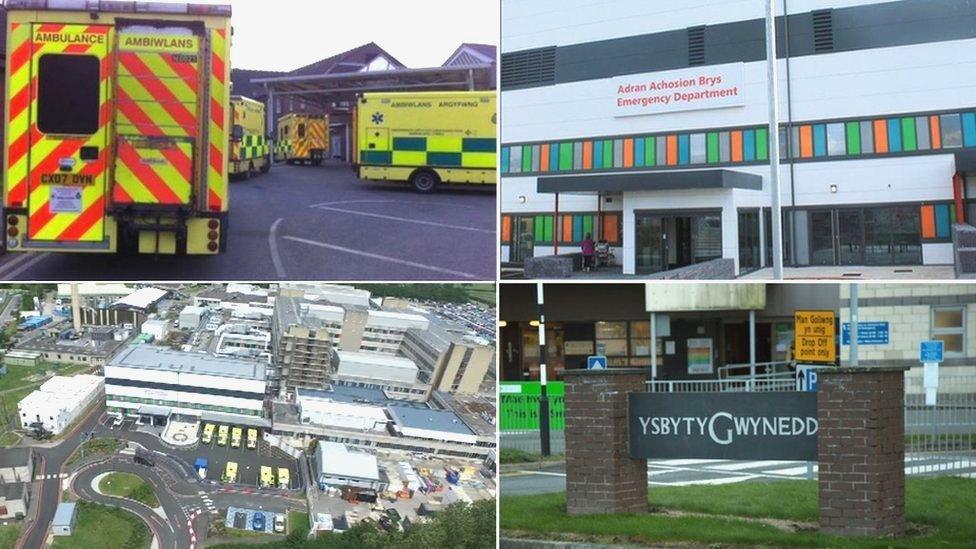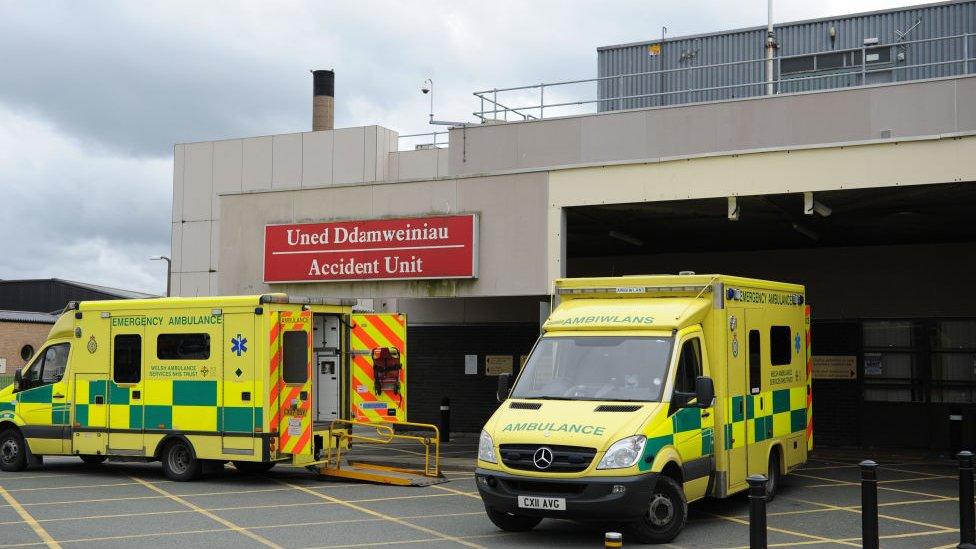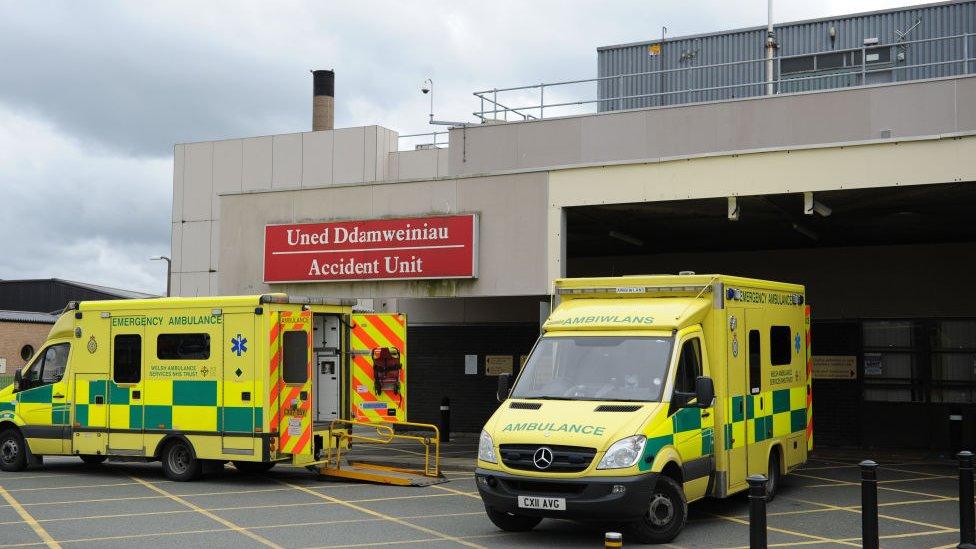Betsi Cadwaladr: Vascular services improving - report
- Published

Vascular services were reorganised in April 2019, with complex procedures moved to Ysbyty Glan Clwyd
NHS vascular services in north Wales are beginning to improve, according to a new report.
Serious concerns about patient safety led to the service being categorised as "requiring significant improvement" by Healthcare Inspectorate Wales (HIW) in March 2022.
But a further inspection has found the quality of care is getting better, though more improvement is needed.
Betsi Cadwaladr health board said it accepted more improvements were needed.
Vascular services diagnose and treat people for problems with arteries, veins or circulation, and are often used by patients who have other health issues, such as diabetes.

Betsi Cadwaladr manages NHS services and hospitals in Anglesey, Gwynedd, Conwy, Denbighshire, Flintshire and Wrexham
Problems were first reported when complex vascular services were centralised from Ysbyty Gwynedd in Bangor and Wrexham Maelor Hospital to Ysbyty Glan Clwyd in April 2019.
Betsi Cadwaladr manages NHS services and hospitals in Anglesey, Gwynedd, Conwy, Denbighshire, Flintshire and Wrexham.
Dr Nick Lyons, executive medical director at Besti Cadwaladr told BBC Radio Wales Breakfast that the transfer of vascular services "wasn't done as effectively as it should have been".
"We have always maintained that it was right to centralise to bring all our resources into one place, so that we could ensure the potential for excellent care was there," he added.
"But that wasn't done as effectively as it should have been. I think it the decision was the right one and that is now beginning to be demonstrated with this new report."
After patients and staff raised concerns about the new service at Ysbyty Glan Clwyd, the Betsi Cadwaladr health board commissioned the Royal College of Surgeons England to investigate.
Its report was published in two parts in 2021 and 2022 and found risks to patients' safety in several areas and concluded that in some cases, clinicians "were possibly working outside the limits of their competence".
However, the regulatory body HIW said it has now de-escalated its level of concern, and vascular services were no longer a service requiring significant improvement.
HIW chief executive Alun Jones said: "It is positive to hear vascular services are improving in a number of areas.
"However, our review did make 11 recommendations for further improvement to strengthen the current arrangements in place.
"The Betsi Cadwaladr University Health Board must ensure measures are in place to assure itself that the improvements and processes implemented since the RCS review are sustainable now and in the future."
Mr Lyons added: "I want to assure our patients the health board recognises our vascular service has not always met the standards we aspire to and, in some cases, let patients down.
"To be a service not requiring significant improvement is merely the baseline standard everyone should expect.
"I note HIW's acknowledgement of the positive progress made against all nine of the recommendations contained within the Royal College of Surgeon's report published in February 2022 - and how the outcomes and experiences of people are much improved.
"We know there is more to do and we will continue to work together on the next stage of the improvement."
Welsh Conservative Shadow Minister for North Wales, Darren Millar MS welcomed news of improvement.
"The health board must now ensure that it remains focused on addressing the remaining issues in our vascular services while continuing to get to grips with other performance issues such as unacceptable waiting times, poor Emergency Department performance and a dysfunctional executive team," he said.
Related topics
- Published24 May 2023

- Published17 May 2023

- Published23 February 2023
